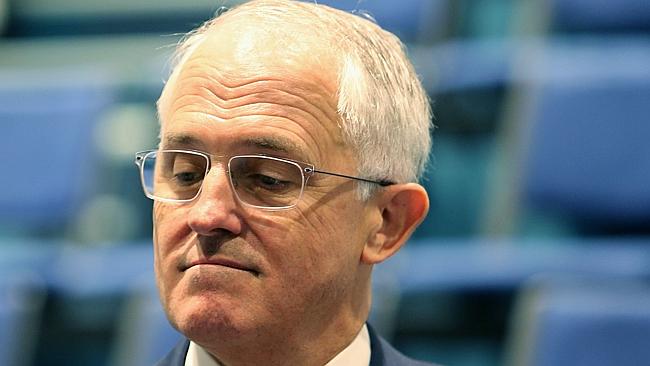Why Prime Minister Malcolm Turnbull is struggling in the polls
MALCOLM Turnbull says it was all part of a cunning plan. But it backfired, and that is why the prime minister is suddenly behind in the polls.

ANALYSIS
The words of the brilliant comedy Blackadder are summoned by the deeply serious matter of Prime Minister Malcolm Turnbull appearing to muddle himself and the electorate over income tax policy.
To borrow a line from Blackadder, the Prime Minister has been “as cunning as a fox who has just been made Professor of Cunning at Oxford University”.
Unfortunately for him, he bewildered voters as well as his opponents.
And the latest Newspoll seems to confirm that.
If a government is not clear and coherent on tax, voters will become alarmed.
In hindsight, Mr Turnbull and Treasurer Scott Morrison have celebrated last week’s confusing episode of suggestions states should levy their own income tax, and that the Federal Government should withdraw from public school funding.
But only in hindsight are we being told it was part of a cunning plan.
The aim had been to get then states to discipline their spending and stop asking for Commonwealth money. States, too, had to live within their means.

The Turnbull/Morrison combo had called the premiers’ bluff, and it was a resounding victory, the Treasurer pleaded yesterday.
So, the government was genuine in urging the states to have their own income tax levies, but it was a victory for the Turnbull/Morrison combo when the idea was rejected by premiers.
However, voters had failed to see a finely-tuned strategy in play as they watched the Prime Minister surprise most with ideas to redraw the tax system and potentially create nine different income tax systems, and to send money to private schools but not state schools.
Newspoll, in today’s The Australian, reflects the fact electors were not impressed. The state income tax idea was rejected by 58 per cent of those surveyed, including 48 per cent of Coalition voters.
Dissatisfaction with Mr Turnbull’s performances rose from 44 per cent to 48 per cent in two weeks.
The two-party preferred vote shifted marginally, with Labor at 51 per cent and the Coalition at 49 per cent — a switch from the outcome of March 20 and the first time Labor has led during the Turnbull administration.
Mr Turnbull remains preferred prime ministers — 48 per cent to the 27 per cent of Labor’s Bill Shorten.
The impact of the survey findings is as reaction to last week’s carry-on, rather than a pointer to an election outcome.
The chief reading is that the government was unable to convince many voters it knew what it was doing.
After all, Mr Morrison didn’t seem to know what the Prime Minister was doing on the matter of
state-levied income tax systems that he was proposing.
When a plan is so cunning even allies are outfoxed, the political cost will be immediate.



